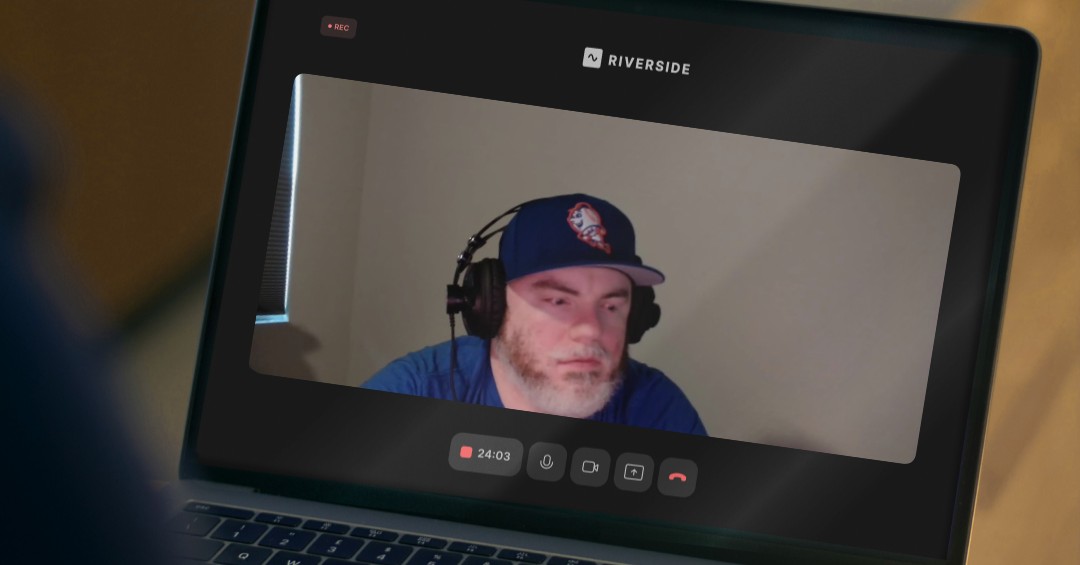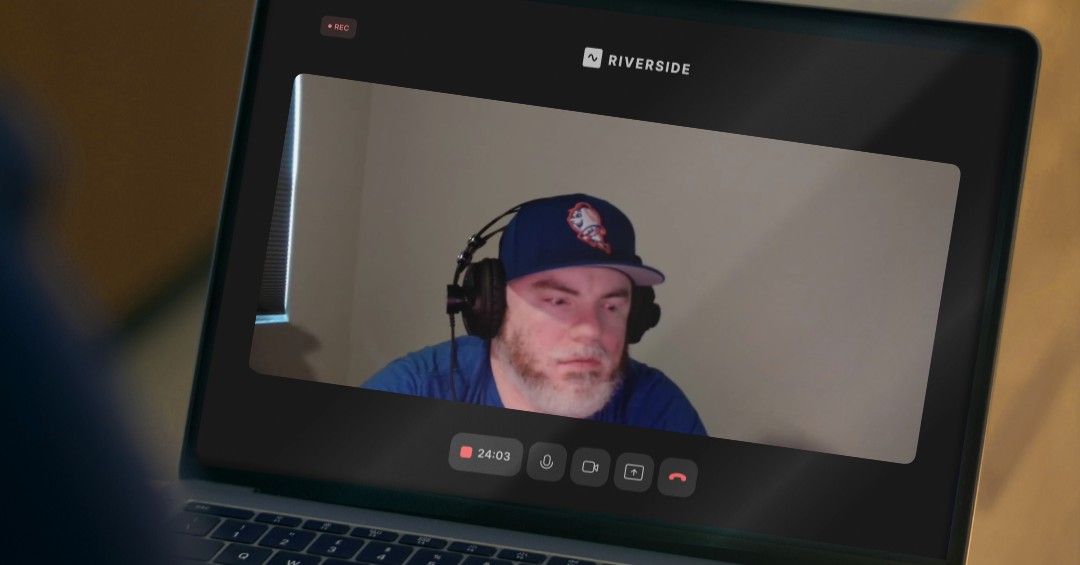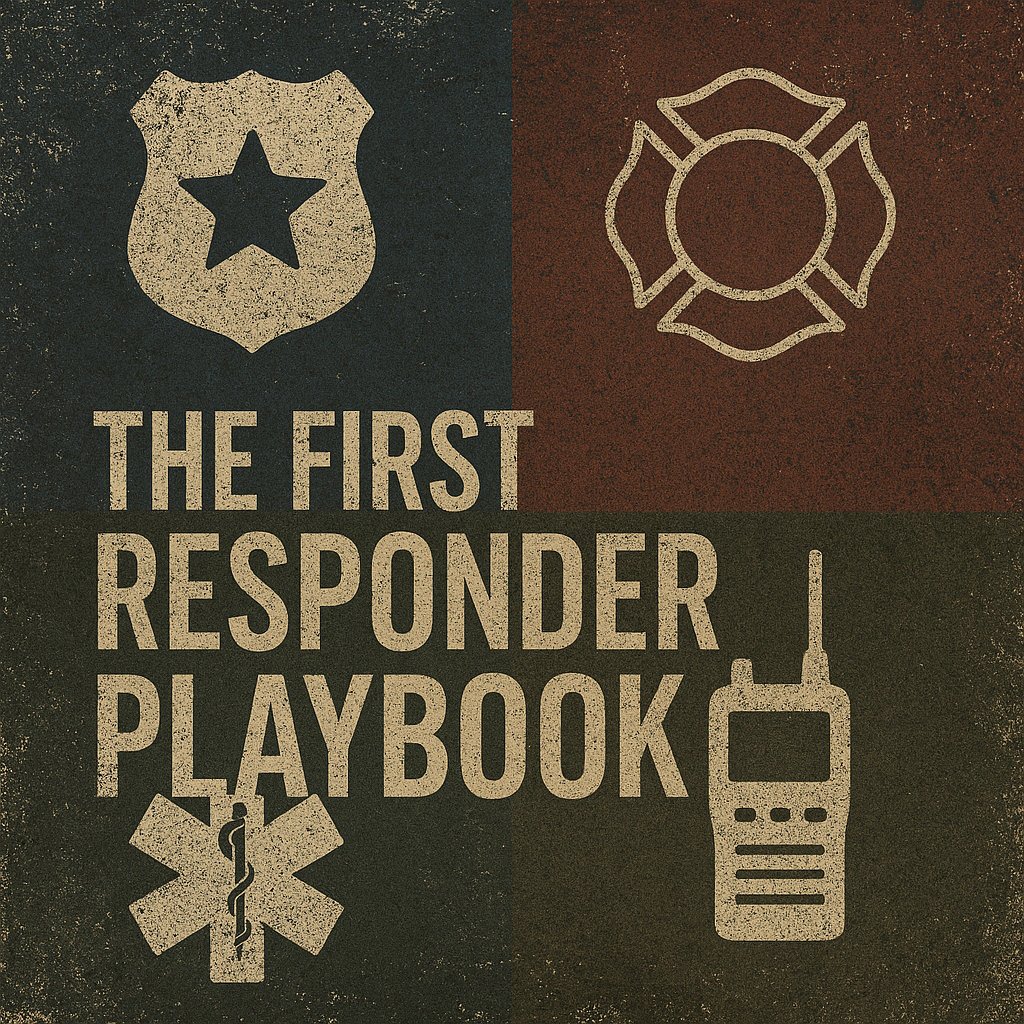

The Making of a Marine: Challenges, Triumphs, and Lifelong Friendships Part II
The First Responder Playbook: Insights on Leadership and Training
| Brent Colbert | Rating 0 (0) (0) |
| Launched: May 10, 2025 | |
| bcolbert1629@gmail.com | Season: 1 Episode: 5 |
The Making of a Marine: Challenges, Triumphs, and Lifelong Friendships Part II
The First Responder Playbook: Insights on Leadership and Training
Published: May 10, 2025, Season: 1, Episode: 5
Artist: Brent Colbert
Episode Summary
1. Travis’s Military Background and Transition Out of the Marine Corps
-
Duration in the Marine Corps (13 years)
-
Reasons for leaving: changes in times, God’s plan, instructor role, need to move on
-
Positive outlook on his service and reasons for not criticizing the Marine Corps
2. Transitioning to Civilian Life: Initial Experiences
-
Early transition jobs: working at Don Corp and Lockheed Martin
-
Surrounded by other prior military members
-
Similar structure and culture to military life
-
Work on military bases in similar environments
-
-
The shift to a true civilian job with the Oklahoma Department of Veterans Affairs (ODVA)
-
Differences in civilian work culture and structure
-
Feeling of disconnection upon returning to Oklahoma and Wagner
-
3. Challenges Faced By Veterans (and First Responders) in Transition
-
Lack of effective support programs for transitioning
-
Existing programs seen as insufficient, unwelcoming, or too basic
-
-
The unique struggle of losing structure and camaraderie
-
The gap in support for both veterans and their spouses/families
-
The role of pride and stigma in accessing available resources
-
Problems specific to those with longer service versus shorter-term veterans
4. Recommendations and Ideas for Improved Transition Programs
-
Need for state-funded, all-encompassing programs, including for law enforcement and ex-offenders
-
Centralized places for job interviews and resources, consideration for pride and ease of access
-
Critique of profit-focused veteran "nonprofits"
-
Suggested improvements:
-
Multi-week, hands-on outboarding training (rather than insufficient week-long classes)
-
Resume writing, interview coaching, translation of military to civilian skills
-
Connecting military technical training directly to civilian jobs (e.g., CDLs, aviation maintenance)
-
Focus on practical education and trade skills over formal degrees
-
5. The Value of Military and Law Enforcement Skills in Civilian Life
-
Emphasis on skills learned in military/service that are valuable (leadership, discipline, technical expertise)
-
Discussion about trade school vs. college versus on-the-job learning
-
Importance of belief in oneself and overcoming imposter syndrome
-
Advantages and success stories of veteran-owned businesses
6. The Importance of Camaraderie, Structure, and Support Networks
-
Personal experience of missing camaraderie when working non-law enforcement jobs (insurance agent example)
-
Need for continued support, routines, structure, and belonging
-
Difficulty of functioning in unstructured “civilian” roles after military/first responder service
7. Mental Health, Compassion, and Crisis Intervention
-
Lack of tailored, scenario-based mental health support and training (especially for law enforcement)
-
Veterans’ and first responders’ unique needs and struggles regarding mental health
-
The importance of compassion, understanding, and de-escalation in law enforcement
-
Shortcomings in current mental health training (minimal continuing education requirements, lack of practical value)
-
The impact of mental health struggles for those in service and their transition to civilian life
-
Peer support, debriefing, and coaching: proposed improvements for agencies
8. Leadership, Supervision, and Organizational Culture
-
Problems with “old school” authoritarian leadership styles
-
The significance of genuinely caring for and connecting with people under your supervision
-
Importance of evaluations and feedback (frequency, depth, handling corrective criticism)
-
Value of supervisors/coaches who help with goal-setting, debriefs, and personal growth
-
Examples of good and bad supervisory relationships and their lasting impacts
9. Lessons Learned and Moving Forward
-
The importance of humility and forgiveness in leadership
-
Recognizing individual differences and adapting leadership approaches accordingly
-
Encouraging a culture of positive reinforcement, support, and continuous improvement
10. Practical Resources and Offers for Help
-
Travis’s expertise and willingness to help with navigating the VA system
-
Offer to collaborate on mental health and crisis intervention training for law enforcement
-
Encouragement to reach out for guidance, drawing on Travis’s network and experience
1. Travis’s Military Background and Transition Out of the Marine Corps
-
Duration in the Marine Corps (13 years)
-
Reasons for leaving: changes in times, God’s plan, instructor role, need to move on
-
Positive outlook on his service and reasons for not criticizing the Marine Corps
2. Transitioning to Civilian Life: Initial Experiences
-
Early transition jobs: working at Don Corp and Lockheed Martin
-
Surrounded by other prior military members
-
Similar structure and culture to military life
-
Work on military bases in similar environments
-
-
The shift to a true civilian job with the Oklahoma Department of Veterans Affairs (ODVA)
-
Differences in civilian work culture and structure
-
Feeling of disconnection upon returning to Oklahoma and Wagner
-
3. Challenges Faced By Veterans (and First Responders) in Transition
-
Lack of effective support programs for transitioning
-
Existing programs seen as insufficient, unwelcoming, or too basic
-
-
The unique struggle of losing structure and camaraderie
-
The gap in support for both veterans and their spouses/families
-
The role of pride and stigma in accessing available resources
-
Problems specific to those with longer service versus shorter-term veterans
4. Recommendations and Ideas for Improved Transition Programs
-
Need for state-funded, all-encompassing programs, including for law enforcement and ex-offenders
-
Centralized places for job interviews and resources, consideration for pride and ease of access
-
Critique of profit-focused veteran "nonprofits"
-
Suggested improvements:
-
Multi-week, hands-on outboarding training (rather than insufficient week-long classes)
-
Resume writing, interview coaching, translation of military to civilian skills
-
Connecting military technical training directly to civilian jobs (e.g., CDLs, aviation maintenance)
-
Focus on practical education and trade skills over formal degrees
-
5. The Value of Military and Law Enforcement Skills in Civilian Life
-
Emphasis on skills learned in military/service that are valuable (leadership, discipline, technical expertise)
-
Discussion about trade school vs. college versus on-the-job learning
-
Importance of belief in oneself and overcoming imposter syndrome
-
Advantages and success stories of veteran-owned businesses
6. The Importance of Camaraderie, Structure, and Support Networks
-
Personal experience of missing camaraderie when working non-law enforcement jobs (insurance agent example)
-
Need for continued support, routines, structure, and belonging
-
Difficulty of functioning in unstructured “civilian” roles after military/first responder service
7. Mental Health, Compassion, and Crisis Intervention
-
Lack of tailored, scenario-based mental health support and training (especially for law enforcement)
-
Veterans’ and first responders’ unique needs and struggles regarding mental health
-
The importance of compassion, understanding, and de-escalation in law enforcement
-
Shortcomings in current mental health training (minimal continuing education requirements, lack of practical value)
-
The impact of mental health struggles for those in service and their transition to civilian life
-
Peer support, debriefing, and coaching: proposed improvements for agencies
8. Leadership, Supervision, and Organizational Culture
-
Problems with “old school” authoritarian leadership styles
-
The significance of genuinely caring for and connecting with people under your supervision
-
Importance of evaluations and feedback (frequency, depth, handling corrective criticism)
-
Value of supervisors/coaches who help with goal-setting, debriefs, and personal growth
-
Examples of good and bad supervisory relationships and their lasting impacts
9. Lessons Learned and Moving Forward
-
The importance of humility and forgiveness in leadership
-
Recognizing individual differences and adapting leadership approaches accordingly
-
Encouraging a culture of positive reinforcement, support, and continuous improvement
10. Practical Resources and Offers for Help
-
Travis’s expertise and willingness to help with navigating the VA system
-
Offer to collaborate on mental health and crisis intervention training for law enforcement
-
Encouragement to reach out for guidance, drawing on Travis’s network and experience
1. Travis’s Military Background and Transition Out of the Marine Corps
-
Duration in the Marine Corps (13 years)
-
Reasons for leaving: changes in times, God’s plan, instructor role, need to move on
-
Positive outlook on his service and reasons for not criticizing the Marine Corps
2. Transitioning to Civilian Life: Initial Experiences
-
Early transition jobs: working at Don Corp and Lockheed Martin
-
Surrounded by other prior military members
-
Similar structure and culture to military life
-
Work on military bases in similar environments
-
-
The shift to a true civilian job with the Oklahoma Department of Veterans Affairs (ODVA)
-
Differences in civilian work culture and structure
-
Feeling of disconnection upon returning to Oklahoma and Wagner
-
3. Challenges Faced By Veterans (and First Responders) in Transition
-
Lack of effective support programs for transitioning
-
Existing programs seen as insufficient, unwelcoming, or too basic
-
-
The unique struggle of losing structure and camaraderie
-
The gap in support for both veterans and their spouses/families
-
The role of pride and stigma in accessing available resources
-
Problems specific to those with longer service versus shorter-term veterans
4. Recommendations and Ideas for Improved Transition Programs
-
Need for state-funded, all-encompassing programs, including for law enforcement and ex-offenders
-
Centralized places for job interviews and resources, consideration for pride and ease of access
-
Critique of profit-focused veteran "nonprofits"
-
Suggested improvements:
-
Multi-week, hands-on outboarding training (rather than insufficient week-long classes)
-
Resume writing, interview coaching, translation of military to civilian skills
-
Connecting military technical training directly to civilian jobs (e.g., CDLs, aviation maintenance)
-
Focus on practical education and trade skills over formal degrees
-
5. The Value of Military and Law Enforcement Skills in Civilian Life
-
Emphasis on skills learned in military/service that are valuable (leadership, discipline, technical expertise)
-
Discussion about trade school vs. college versus on-the-job learning
-
Importance of belief in oneself and overcoming imposter syndrome
-
Advantages and success stories of veteran-owned businesses
6. The Importance of Camaraderie, Structure, and Support Networks
-
Personal experience of missing camaraderie when working non-law enforcement jobs (insurance agent example)
-
Need for continued support, routines, structure, and belonging
-
Difficulty of functioning in unstructured “civilian” roles after military/first responder service
7. Mental Health, Compassion, and Crisis Intervention
-
Lack of tailored, scenario-based mental health support and training (especially for law enforcement)
-
Veterans’ and first responders’ unique needs and struggles regarding mental health
-
The importance of compassion, understanding, and de-escalation in law enforcement
-
Shortcomings in current mental health training (minimal continuing education requirements, lack of practical value)
-
The impact of mental health struggles for those in service and their transition to civilian life
-
Peer support, debriefing, and coaching: proposed improvements for agencies
8. Leadership, Supervision, and Organizational Culture
-
Problems with “old school” authoritarian leadership styles
-
The significance of genuinely caring for and connecting with people under your supervision
-
Importance of evaluations and feedback (frequency, depth, handling corrective criticism)
-
Value of supervisors/coaches who help with goal-setting, debriefs, and personal growth
-
Examples of good and bad supervisory relationships and their lasting impacts
9. Lessons Learned and Moving Forward
-
The importance of humility and forgiveness in leadership
-
Recognizing individual differences and adapting leadership approaches accordingly
-
Encouraging a culture of positive reinforcement, support, and continuous improvement
10. Practical Resources and Offers for Help
-
Travis’s expertise and willingness to help with navigating the VA system
-
Offer to collaborate on mental health and crisis intervention training for law enforcement
-
Encouragement to reach out for guidance, drawing on Travis’s network and experience
Welcome back to "My Space"! In this episode, host Brent sits down with Travis, a Marine Corps veteran and first responder, for an honest and deeply insightful conversation about the challenges of transitioning from military life to the civilian world. Travis opens up about his thirteen years in the Marine Corps, the factors that led him to leave, and the hurdles he faced as he adjusted to new roles outside the military—from working at Lockheed Martin to supporting veterans in state government.
Together, Brent and Travis dive into the often overlooked difficulties veterans and first responders experience when re-entering civilian society, including the struggle for structure, meaningful employment, and understanding from those who haven’t walked in their shoes. They discuss the shortcomings of current transition programs, the importance of mental health support, and the value of compassionate leadership both in and out of uniform.
This episode isn’t just about identifying problems—it’s about finding solutions. Travis shares his thoughts on how state-funded programs could better serve veterans, law enforcement, and even those re-entering society after incarceration. The two also reflect on the power of mentorship, the need for better mental health training, and how simple acts of connection can change the culture of any organization.
Whether you’re a veteran, a first responder, or someone who cares about our service members, you’ll find plenty of wisdom, empathy, and practical advice in this heartfelt episode. So join us as we explore life after service, the pursuit of purpose, and what it means to build a supportive community from the ground up.





